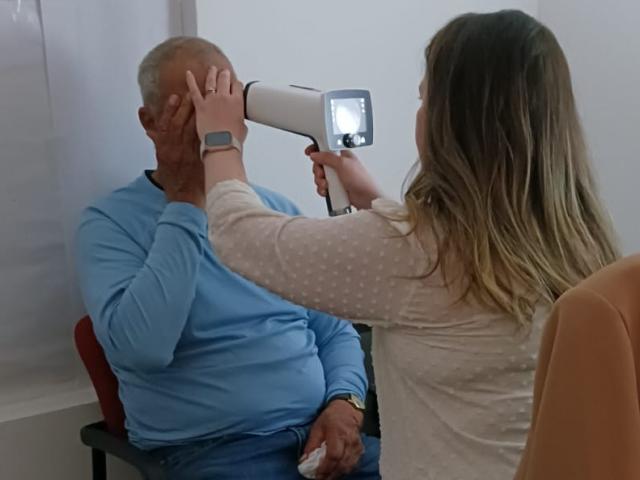
Diabetes Awareness Week: Research studies support vital eye screening for people living with diabetes
15 June
Over 200,000 people in Wales are living with diabetes, the highest prevalence in the UK. A further 580,000 in Wales may be at risk of developing type 2 diabetes.
Diabetes can lead to serious complications such as diabetic retinopathy, which can lead to sight loss. Eye problems develop gradually, and symptoms often do not appear until the late stages, so people with diabetes are usually invited for annual eye screening to monitor any changes.
To mark Diabetes Awareness Week, we are highlighting two studies funded by Health and Care Research Wales supporting these vital eye screenings.
The first, led by Dr Rebecca Thomas, Senior Research Officer at the Diabetes Research Unit Cymru, Swansea University, is evaluating the impact of the pause in eye screening appointments during the COVID-19 pandemic. Dr Thomas said,
If left untreated, retinopathy can lead to sight loss. This can be devastating for the individual involved, but they often don’t know anything is wrong until the eyes are quite badly affected. This is why screening is so important, to pick up any changes early and prevent things from getting to a stage where someone’s sight is threatened.
If identified earlier, treatment is more effective and there is less impact on the patient’s vision and quality of life. Evaluating the impact of the gap in screening on the sight of people with diabetes and on their overall quality of life will help determine a safe interval between screenings.”
Dr Thomas is also a co-investigator on the second study, with Prof Eirini Skidadaresi, Hywel Dda University Health Board. This aims to ease the current backlog of ophthalmology referrals by partnering with local optometry practices, enabling patients to be seen in their local community instead. Dr Thomas continued,
Eye screening services have struggled to recover from the pandemic. There is a huge backlog and lengthy waiting lists which can be very worrying for patients.
If it proves successful it could bring waiting lists down and make a real difference to patients.”